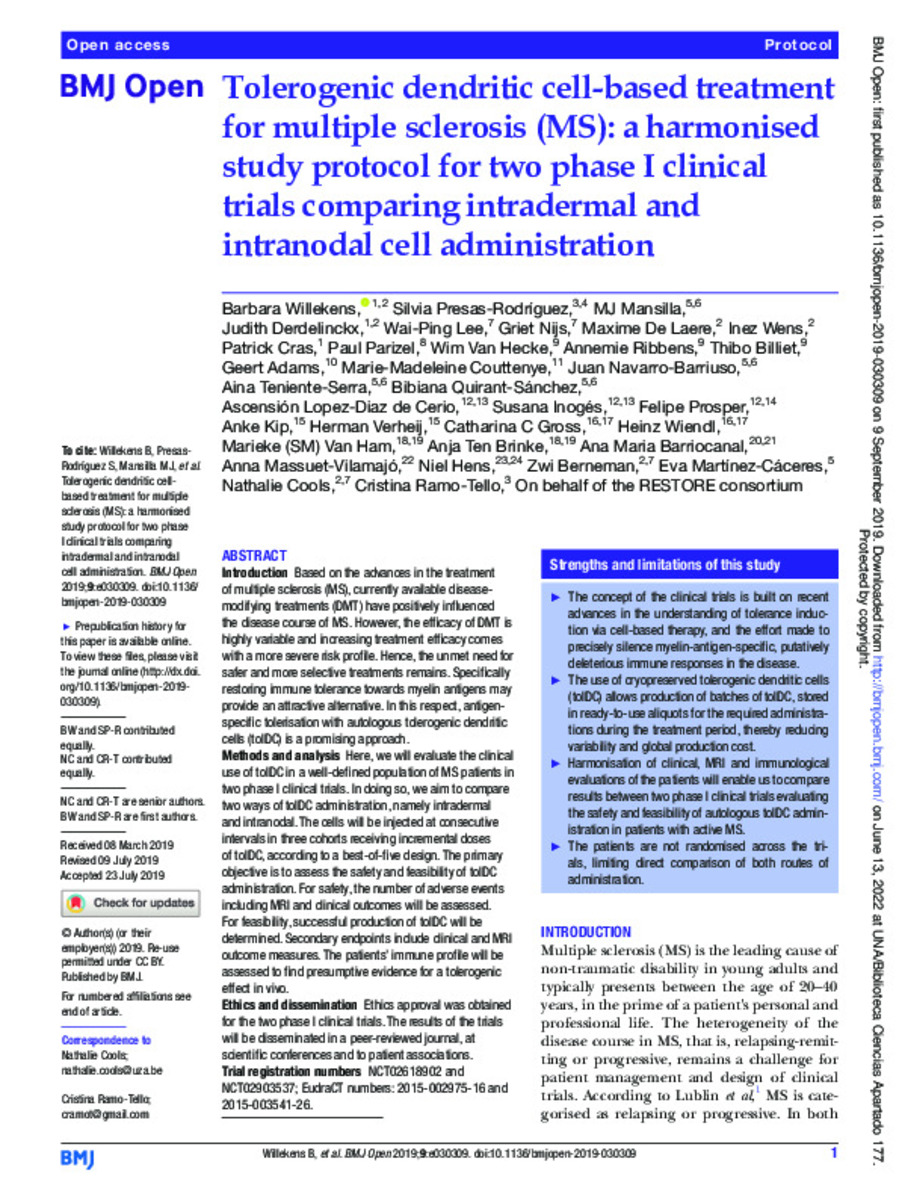Tolerogenic dendritic cell-based treatment for multiple sclerosis (MS): a harmonised study protocol for two phase I clinical trials comparing intradermal and intranodal cell administration
Palabras clave :
Multiple sclerosis (MS)
Disease-modifying treatments (DMT)
Severe risk profile
Tolerogenic dendritic cells (tolDC)
Fecha de publicación :
2019
Nota:
This is an open access article distributed in accordance with the
Creative Commons Attribution 4.0 Unported (CC BY 4.0) license, which permits
others to copy, redistribute, remix, transform and build upon this work for any
purpose, provided the original work is properly cited, a link to the licence is given,
and indication of whether changes were made. See: https://creativecommons.org/
licenses/by/4.0/
Cita:
Willekens, B. (Barbara); Presas-Rodríguez, S. (Silvia); Mansilla, M.J. (M. J.); et al. "Tolerogenic dendritic cell-based treatment for multiple sclerosis (MS): a harmonised study protocol for two phase I clinical trials comparing intradermal and intranodal cell administration". BMJ Open. 9, 2019, e030309
Aparece en las colecciones:
Estadísticas e impacto
0 citas en

0 citas en

Los ítems de Dadun están protegidos por copyright, con todos los derechos reservados, a menos que se indique lo contrario.







